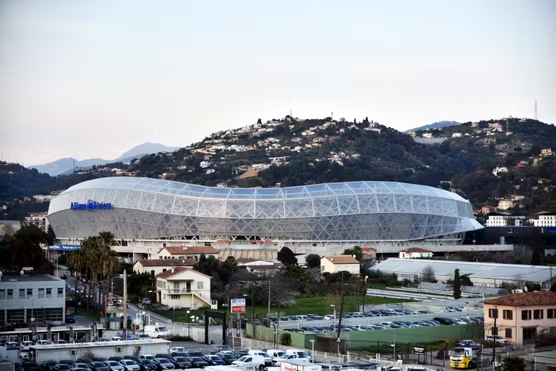
The debate over Nice’s ambitious infrastructure plans for the 2030 Winter Olympics has escalated sharply, following renewed political criticism of the project’s soaring costs.
What began as mild concern has now become a full-blown national discussion about public spending, transparency and Olympic priorities.
Tensions boiled over in early November when Frédéric Maillot, rapporteur for the 2026 sports budget and a Communist MP representing La Réunion, addressed the Assemblée Nationale’s Committee on Cultural and Educational Affairs.
Maillot condemned the financial burden associated with building a permanent Olympic ice rink in Nice and temporarily converting the Allianz Riviera football stadium into two ice hockey arenas.
According to the public procurement notice issued on August 28 by the French Olympic Delivery Authority (SOLIDEO), the permanent rink—set to be the only newly built sports venue for the 2030 Games—is expected to cost €138 million.
This price tag has raised eyebrows among lawmakers concerned about escalating budgets for Olympic infrastructure, which have historically placed strain on host cities. Further scrutiny stems from a confidential March 2025 report by the General Inspectorate of Finance (IGF).
The report, though unpublished, estimates the cost of converting the Allianz Riviera stadium at approximately €80 million, including four months of compensation for the arena’s concessionaire.
In total, Nice’s Olympic ice infrastructure would require around €218 million in public funds—a figure that has fueled growing criticism. Opposition leaders argue that such funds could be used for essential public services, especially during a period of national economic pressure.
Supporters of the project, including city officials and Games organizers, maintain that the investments will enhance Nice’s long-term sports facilities. They emphasize that the 2030 Olympics present an opportunity to strengthen the city’s position as a winter sports hub and boost tourism-related revenue.
However, Maillot warned that the financial justification remains unclear. He stressed that lawmakers have not been provided with sufficient assurances about long-term economic returns or the facility’s post-Games usage.
Environmental concerns also loom large in the controversy. Activists argue that constructing an ice rink in a region known for its mild climate contradicts France’s environmental commitments and will drive up energy consumption.
Local residents, meanwhile, appear divided. Some welcome the international prestige associated with hosting Olympic events, while others fear that taxpayers will shoulder the burden of facilities that may see limited use after the Games.
As planning continues, pressure is mounting on SOLIDEO and government officials to provide greater transparency. Lawmakers are calling for the IGF report to be made public and for a full cost-benefit analysis to be presented before further contracts are awarded.
With the 2030 Games approaching, France now finds itself weighing the balance between Olympic ambition and fiscal responsibility. The debate over Nice’s ice rink plans is likely only the beginning of broader scrutiny surrounding the nation’s Winter Olympic preparations.